It’s a common scenario we often observe in children’s play. Parents always teach their kids to “share” and be “friendly,” but they forget to mention that “begging friendship” is like borrowed candy; sweet for a moment but can’t be kept in the heart.
The prerequisite for earning others’ respect is for children to first respect their own emotions. Therefore, it’s essential to raise kids with a strong sense of self, positive behavior, and attitude so they can protect themselves and choose suitable friends and relationships. There are five sentences parents should frequently say to teach their children about this.
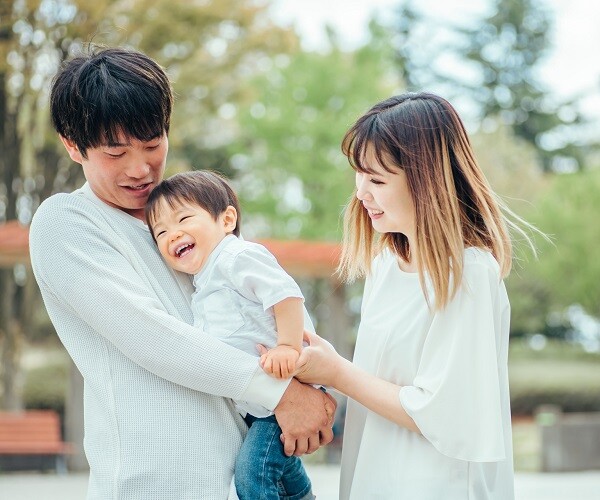

“Being kind to your friends is good, but know when to draw the line.”
Kindness also has its boundaries. If children don’t know how to set limits, they can easily become victims of exploitation. Parents need to help children understand that helping others is wonderful, but it should be balanced and with clear awareness of the situation.
So, teach this to your children as early as possible. Let them know that overextending themselves without understanding can make them a tool for others’ gain.
For example, if your child lends an eraser to a classmate who never returns it, teach them to observe and analyze the situation.
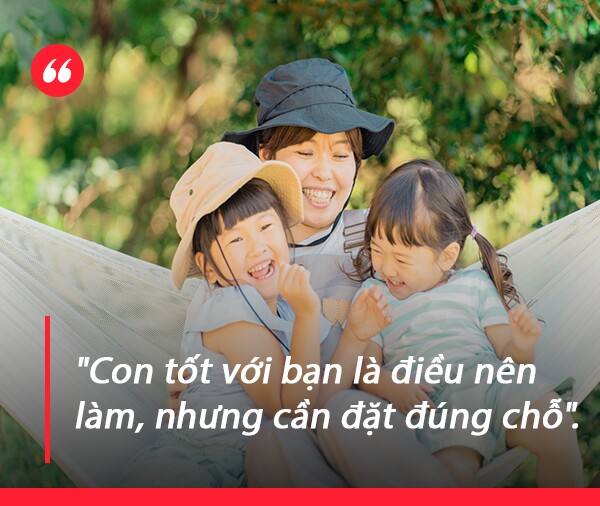
Help them realize that kindness doesn’t always mean fulfilling every request. Children must learn to choose who deserves their help. Teach them that sometimes, refusing to help is a form of self-protection and maintaining self-respect.
Encourage your children to develop insight into relationships, understanding that help should only be given to those who appreciate and are grateful. In the long run, children will learn to be good friends, develop self-confidence, and be able to protect themselves.

“Sometimes, loss can bring you more.”
By saying, “Sometimes, loss can bring you more”, parents emphasize that difficult experiences, like losing friends, can open up valuable opportunities and lessons for children.
Loss doesn’t have to be a failure; it can be a turning point for children to understand the value of friendship and what truly matters in relationships.
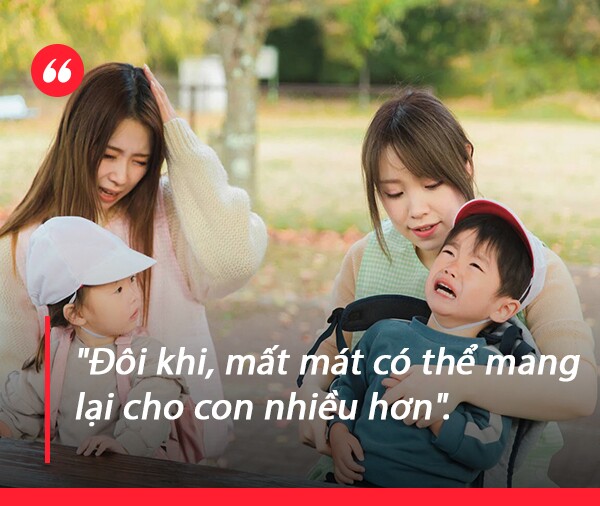
A true friend will share and grow together, not compete or be jealous. When children realize that not all relationships are permanent and that some friends may no longer be suitable, they learn that genuine friendship is based on mutual support and respect.
As they face negative emotions and seek solutions, they become stronger. Encourage your children to reflect on what they’ve learned from these experiences, such as better communication, finding positive friends, and developing new hobbies and skills.

“You can say ‘no’ if you don’t want to.”
This sentence conveys a sense of safety: the right to refuse and be confident will be accepted. Teaching children that they have the right to refuse is crucial for building a foundation for healthy psychological development.
Research shows that children aged 7-9 who can clearly say, “I can’t help you right now”, score 28% higher on “reliability” when assessed by their peers. This indicates that when children can express boundaries clearly, they earn more respect and build healthier and more sustainable relationships. Trust comes from children learning to say “no” skillfully and firmly.
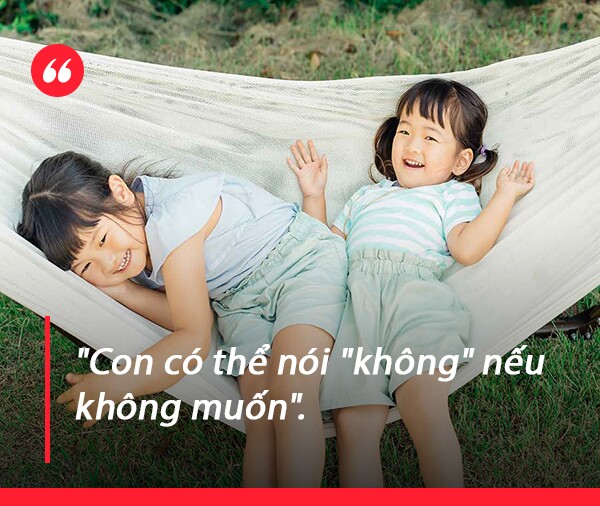
Learning to say “no” and bravely refusing unreasonable requests empowers children and allows others to listen to their inner voice. This isn’t just about refusing a request; it’s about affirming self-worth and one’s position in a relationship.
Imagine your child standing firm against peer pressure, saying, “I don’t want to do that.” This action earns respect from peers, and your child feels more confident about their decision.

“If it’s yours, you decide whether to give it away or keep it.”
Many adults often say, “You should give in to your younger sibling” or “It’s more fun when you play together.” But if you say these things too often, children will feel that “my feelings don’t matter.”
In psychology, there’s a concept called “emotional self-regulation.” Children are like young trees; the more they’re allowed to express “I’m angry,” “I feel wronged,” “I don’t want to accept this”, the deeper their roots will grow.
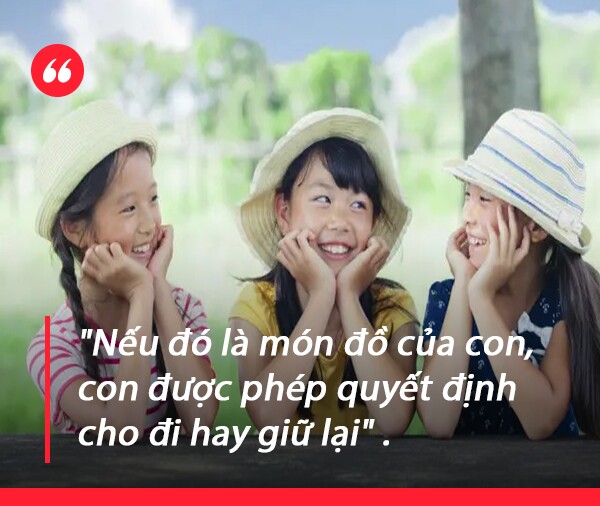
Before the age of 10 is a crucial period for developing emotional self-regulation. When parents prioritize helping children recognize and understand their true emotions, rather than suppressing them with moral norms (submitting to others), children will be able to establish a stable sense of self.
Next time your child says, “My ball was taken, but I don’t dare to ask for it back”, don’t rush to teach them humility. Instead, try saying, “It’s yours; you decide whether to give it away or keep it.”

“Be yourself; you don’t need everyone to like you.”
This sentence helps children overcome the worry of being recognized and boosts their confidence.
Children understand things through the shapes (outward appearance) of concrete objects. Using specific comparisons instead of abstract lecturing helps children grasp that friends are chosen, not flattered, breaking the obsession with “wanting everyone’s approval.”
A mother shared that her son was sad because a few friends didn’t want to play with him. She pointed to a large tree by the road and said, “Look, some people enjoy the shade of the tree, while others find the falling leaves annoying. But does the tree need to please everyone?”
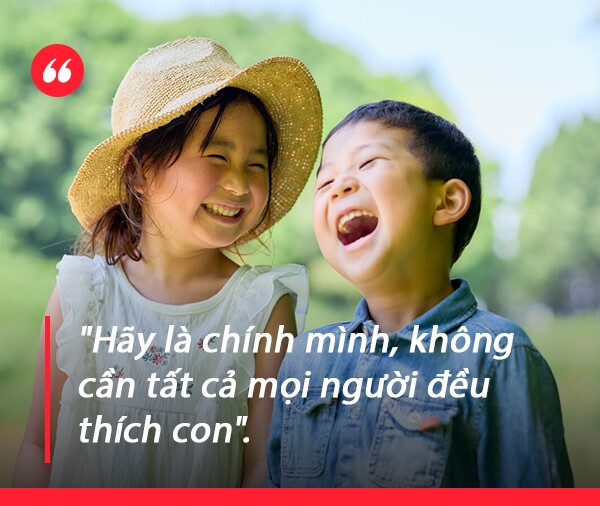
This story conveys a profound message: everyone has their own value, and there’s no need to change oneself to please everyone.
Why Parents Should Want Their Child to Be Like Nobita?
“We all know Nobita from the beloved Doraemon series, but have you ever wondered why parents should aspire for their children to emulate this quirky character? With his unique blend of qualities, Nobita embodies values that can inspire a generation. In this article, we delve into the heart of Nobita’s charm and explore why he just might be the role model your kids need. Get ready to see this familiar face in a whole new light!”





































